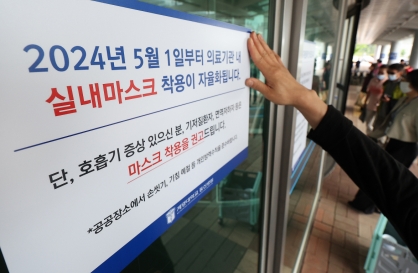SINGAPORE (AP) ― The Straits Times, one of Southeast Asia’s largest circulated English newspapers, has named the leaders of China and Japan as the most prominent Asians of 2013. The title, instituted last year, aims to recognize a person whose work or actions have had significant impact on the region.
Despite being relatively new leaders, Chinese President Xi Jinping and Japanese Prime Minister Shinzo Abe “have already left a mark on Asia,” The Straits Times of Singapore said in an announcement Wednesday.
The paper had named President Thein Sein of Myanmar as Asian of the Year 2012 for leading political reforms.
This year, the newspapers’ editors were split between Xi and Abe, whose nations are regional rivals and have been embroiled in a territorial dispute over a cluster of islands in the East China Sea. In the end, the editors decided to name them joint winners.
“In Asia currently, no two leaders have greater responsibility ― to build up their economies, protect the global commons and preserve the peace that has paved the way for Asian prosperity,” said The Straits Times editor Warren Fernandez.
He noted that both men have unveiled sweeping reform agendas at home while building up influence abroad.
“Their economic policies, if implemented successfully, could impact millions of lives in wider Asia. Indeed, the effects are already showing as a rising flow of Japanese investments and Chinese infrastructure projects flow into Asia,” Fernandez said. “At the same time, we do not seek to ignore their differences, which are by no means trivial, given the traumas of their shared history.”
Tensions between the two countries flared recently after China announced an air defense identification zone above the East China Sea, requiring all foreign aircraft entering it to identify themselves to Chinese authorities. The zone covers an area containing a string of uninhabited islands controlled by Japan but also claimed by China.
These tensions, which have fueled nationalistic rhetoric in both countries, “could give rise to popular pressure that might spiral beyond the control of political leaders,” Fernandez said.
The 60-year-old Xi was appointed China’s Communist Party and military chief in November 2012, and confirmed as president in March. Xi has emerged as a strong leader with campaigns against corruption and a drive to promote a frugal lifestyle among government officials.
Abe, 59, took power last December, and immediately unleashed an economic stimulus and reform program known as “Abenomics” that weakened the yen by 20 percent, a boon for Japanese exporters, and lifted the stock market. He has also toured all 10 Southeast Asian countries in less than a year, a feat unmatched by his predecessors, reflecting the importance he attaches to the region as a trade and strategic partner.
Despite being relatively new leaders, Chinese President Xi Jinping and Japanese Prime Minister Shinzo Abe “have already left a mark on Asia,” The Straits Times of Singapore said in an announcement Wednesday.
The paper had named President Thein Sein of Myanmar as Asian of the Year 2012 for leading political reforms.
This year, the newspapers’ editors were split between Xi and Abe, whose nations are regional rivals and have been embroiled in a territorial dispute over a cluster of islands in the East China Sea. In the end, the editors decided to name them joint winners.
“In Asia currently, no two leaders have greater responsibility ― to build up their economies, protect the global commons and preserve the peace that has paved the way for Asian prosperity,” said The Straits Times editor Warren Fernandez.
He noted that both men have unveiled sweeping reform agendas at home while building up influence abroad.
“Their economic policies, if implemented successfully, could impact millions of lives in wider Asia. Indeed, the effects are already showing as a rising flow of Japanese investments and Chinese infrastructure projects flow into Asia,” Fernandez said. “At the same time, we do not seek to ignore their differences, which are by no means trivial, given the traumas of their shared history.”
Tensions between the two countries flared recently after China announced an air defense identification zone above the East China Sea, requiring all foreign aircraft entering it to identify themselves to Chinese authorities. The zone covers an area containing a string of uninhabited islands controlled by Japan but also claimed by China.
These tensions, which have fueled nationalistic rhetoric in both countries, “could give rise to popular pressure that might spiral beyond the control of political leaders,” Fernandez said.
The 60-year-old Xi was appointed China’s Communist Party and military chief in November 2012, and confirmed as president in March. Xi has emerged as a strong leader with campaigns against corruption and a drive to promote a frugal lifestyle among government officials.
Abe, 59, took power last December, and immediately unleashed an economic stimulus and reform program known as “Abenomics” that weakened the yen by 20 percent, a boon for Japanese exporters, and lifted the stock market. He has also toured all 10 Southeast Asian countries in less than a year, a feat unmatched by his predecessors, reflecting the importance he attaches to the region as a trade and strategic partner.
-
Articles by Korea Herald




![[Music in drama] Rekindle a love that slipped through your fingers](http://res.heraldm.com/phpwas/restmb_idxmake.php?idx=644&simg=/content/image/2024/05/01/20240501050484_0.jpg&u=20240501151646)

![[New faces of Assembly] Architect behind ‘audacious initiative’ believes in denuclearized North Korea](http://res.heraldm.com/phpwas/restmb_idxmake.php?idx=644&simg=/content/image/2024/05/01/20240501050627_0.jpg&u=20240502093000)



![[KH Explains] Will alternative trading platform shake up Korean stock market?](http://res.heraldm.com/phpwas/restmb_idxmake.php?idx=644&simg=/content/image/2024/05/01/20240501050557_0.jpg&u=20240501161906)








![[Today’s K-pop] Stray Kids go gold in US with ‘Maniac’](http://res.heraldm.com/phpwas/restmb_idxmake.php?idx=642&simg=/content/image/2024/05/02/20240502050771_0.jpg&u=)